
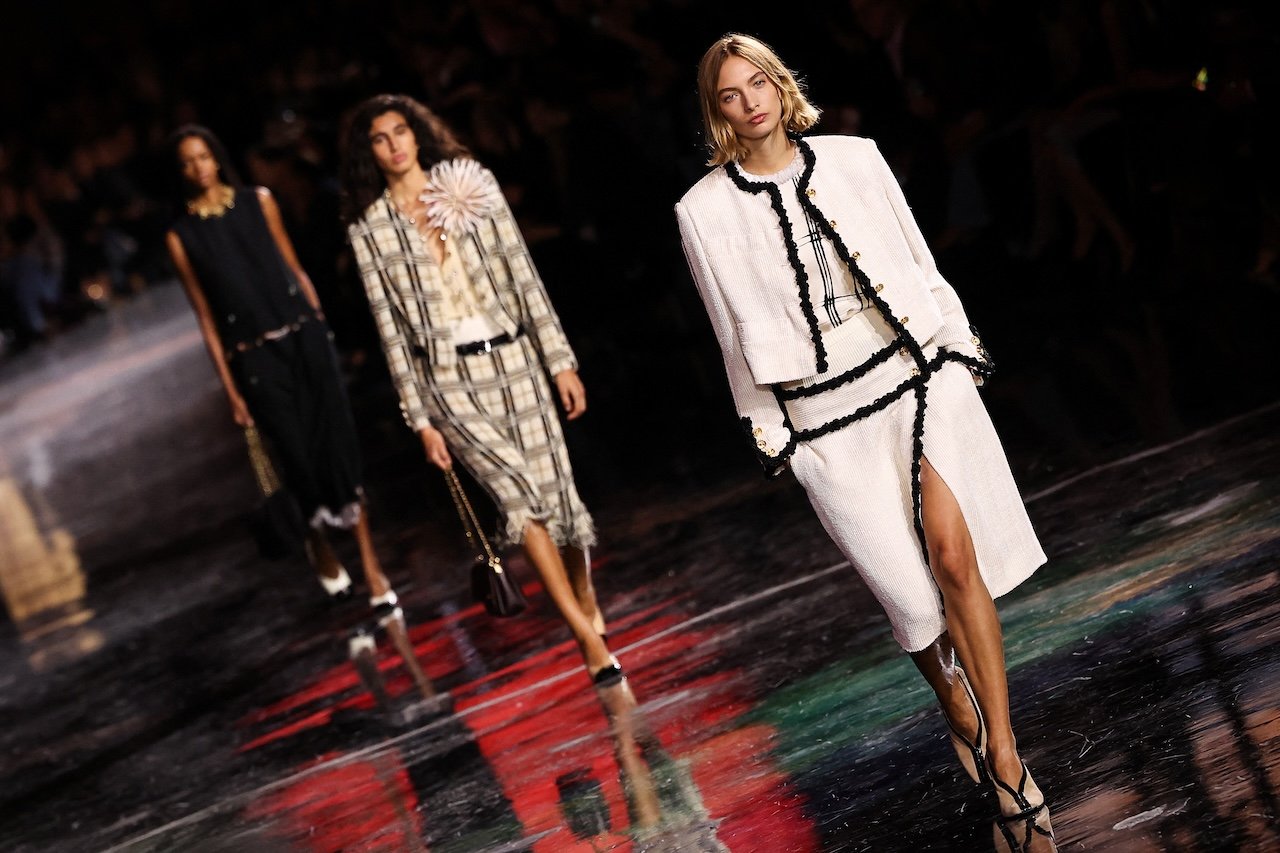
When Matthieu Blazy stepped into the Grand Palais on Monday night to unveil his first collection as Chanel’s new artistic director, the message was immediate: this was fashion made to be felt — not just photographed.
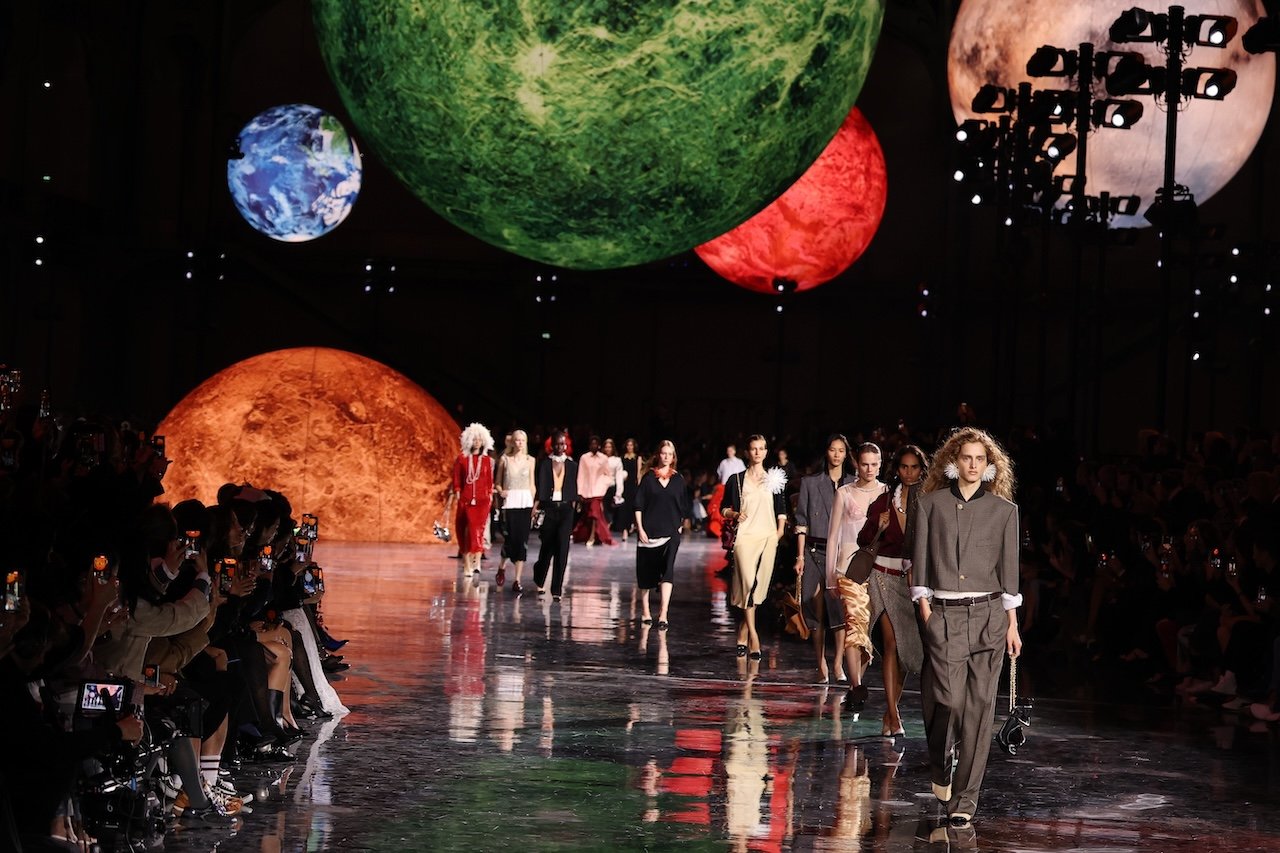
Under the monumental glass dome — freshly restored, with the nave entrance now officially named “Gabrielle Chanel,” marked by a commemorative plaque — planets hung suspended in orbit. Celestial light bounced off a slick black runway, where models drifted through space-like shadows in sculptural tweeds, raw silks, and fluid chiffons.
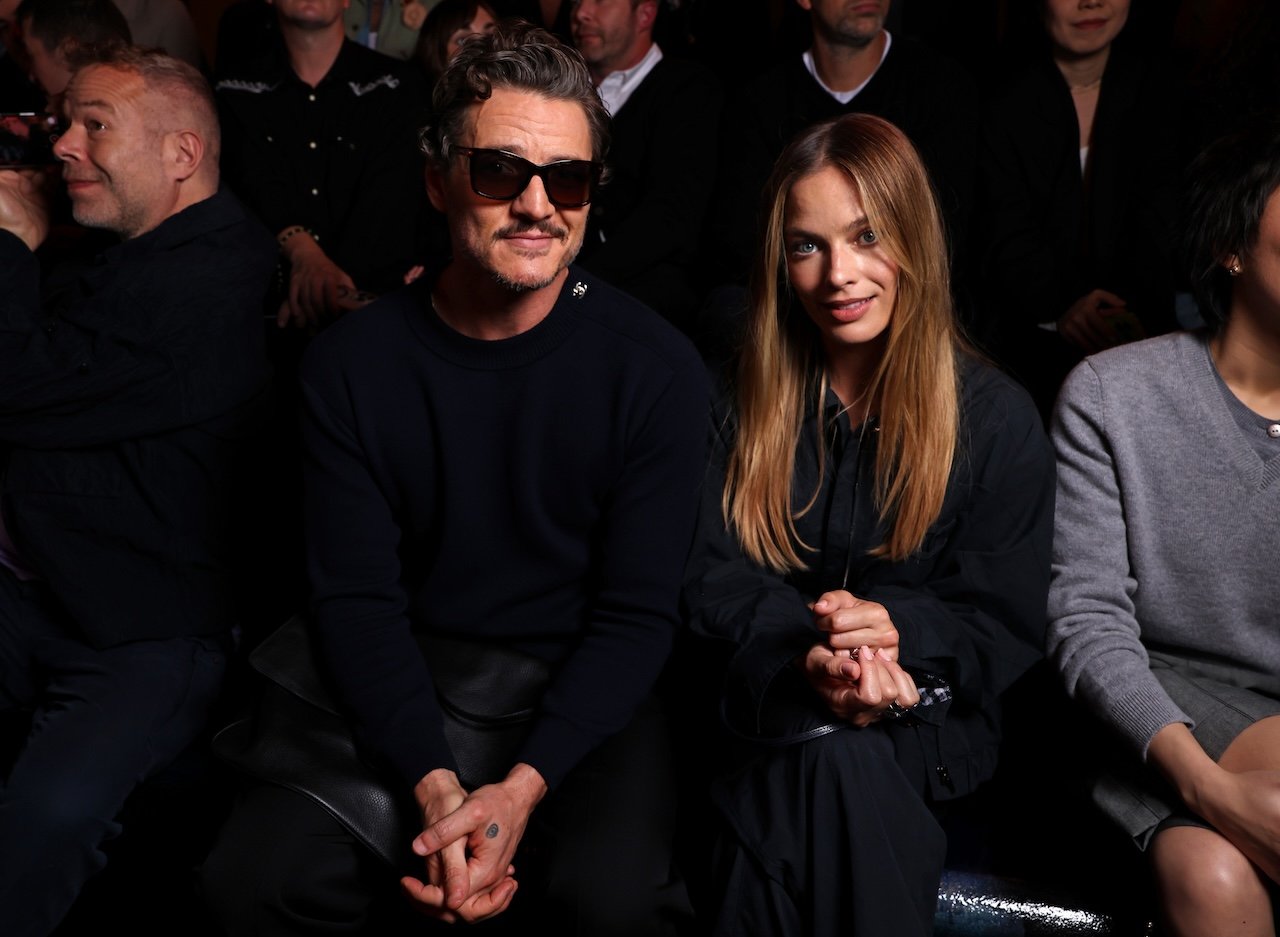
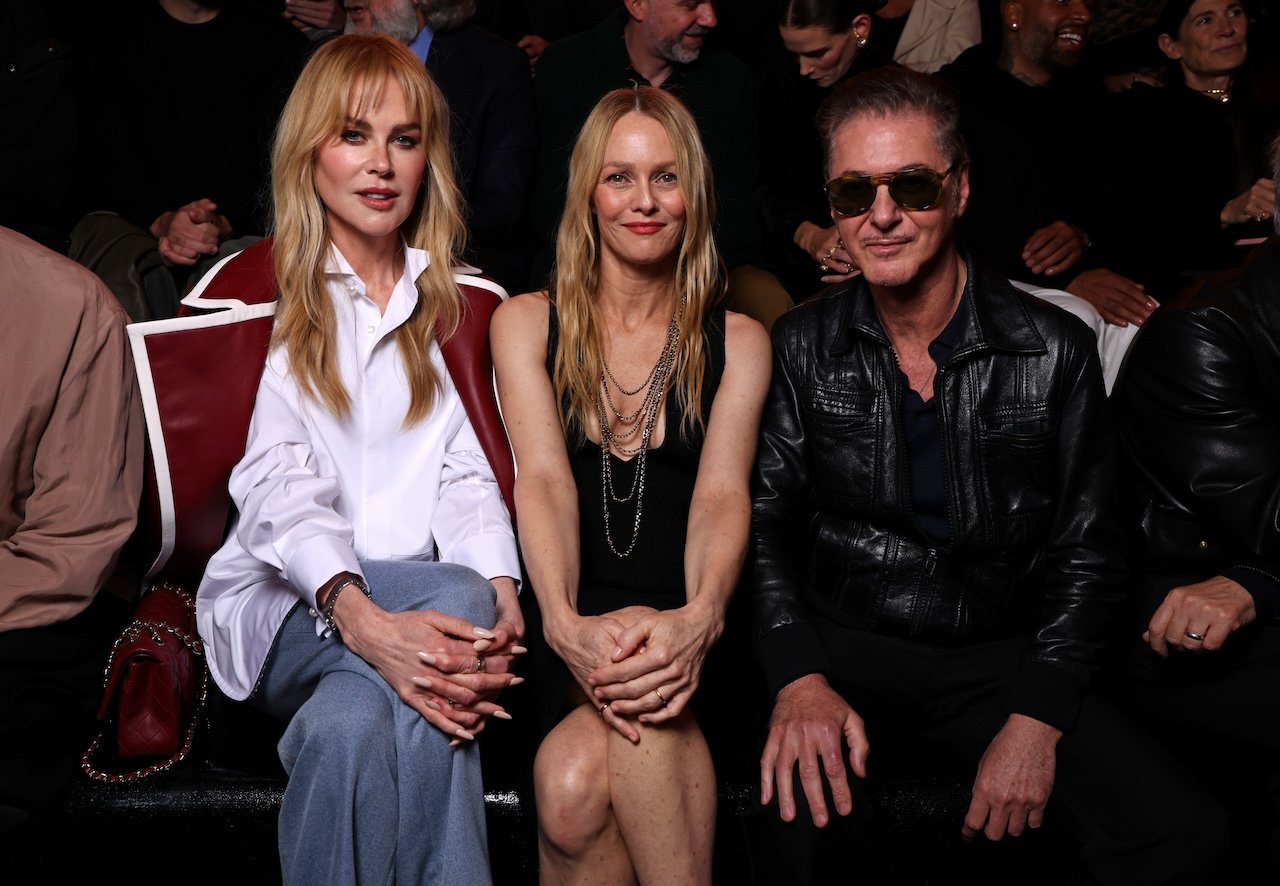
The audience — Margot Robbie, Pedro Pascal, Penélope Cruz, Nicole Kidman, and Ayo Edebiri among them — watched as Blazy quite literally re-centered the Chanel universe. This was not another heritage revival. It was a recalibration.
A Quiet Rebellion Against the Instant Image
Blazy’s debut came at the tail end of a month packed with designer debuts across the fashion capitals, but his approach felt refreshingly unhurried. Known for his tenure at Bottega Veneta — where craft took precedence over logos — he’s long championed fashion that reveals itself in motion, not through a still frame.
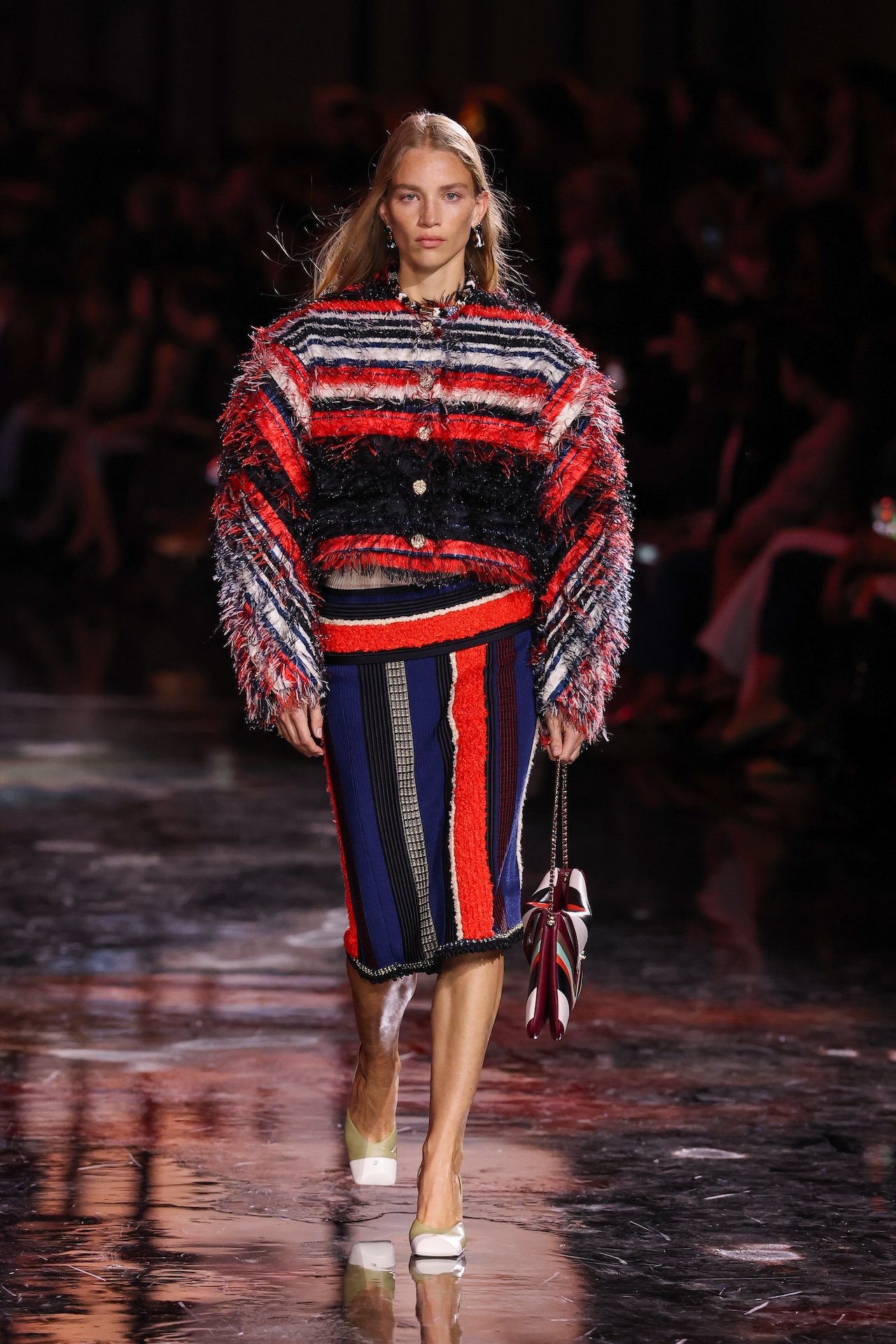
That philosophy was on full display in Paris. Fabrics fluttered, seams danced, and bags slouched naturally under the crook of an arm. A cropped jacket came undone at the edges; boucle suits rippled as models walked. Even the soundtrack — anchored by the 1990s anthem “Rhythm Is a Dancer” — felt like a wink to a generation rediscovering the joy of movement.
It was, in essence, an antidote to Instagram’s obsession with perfection. Clothes weren’t posed, they were alive.
The Weight of Legacy, Reimagined
Blazy now becomes only the fourth artistic director in Chanel’s 115-year history, following Gabrielle “Coco” Chanel, Karl Lagerfeld, and Virginie Viard. His appointment represents both continuity and change: a creative entrusted to guard the house’s codes while pushing them somewhere unexpected.
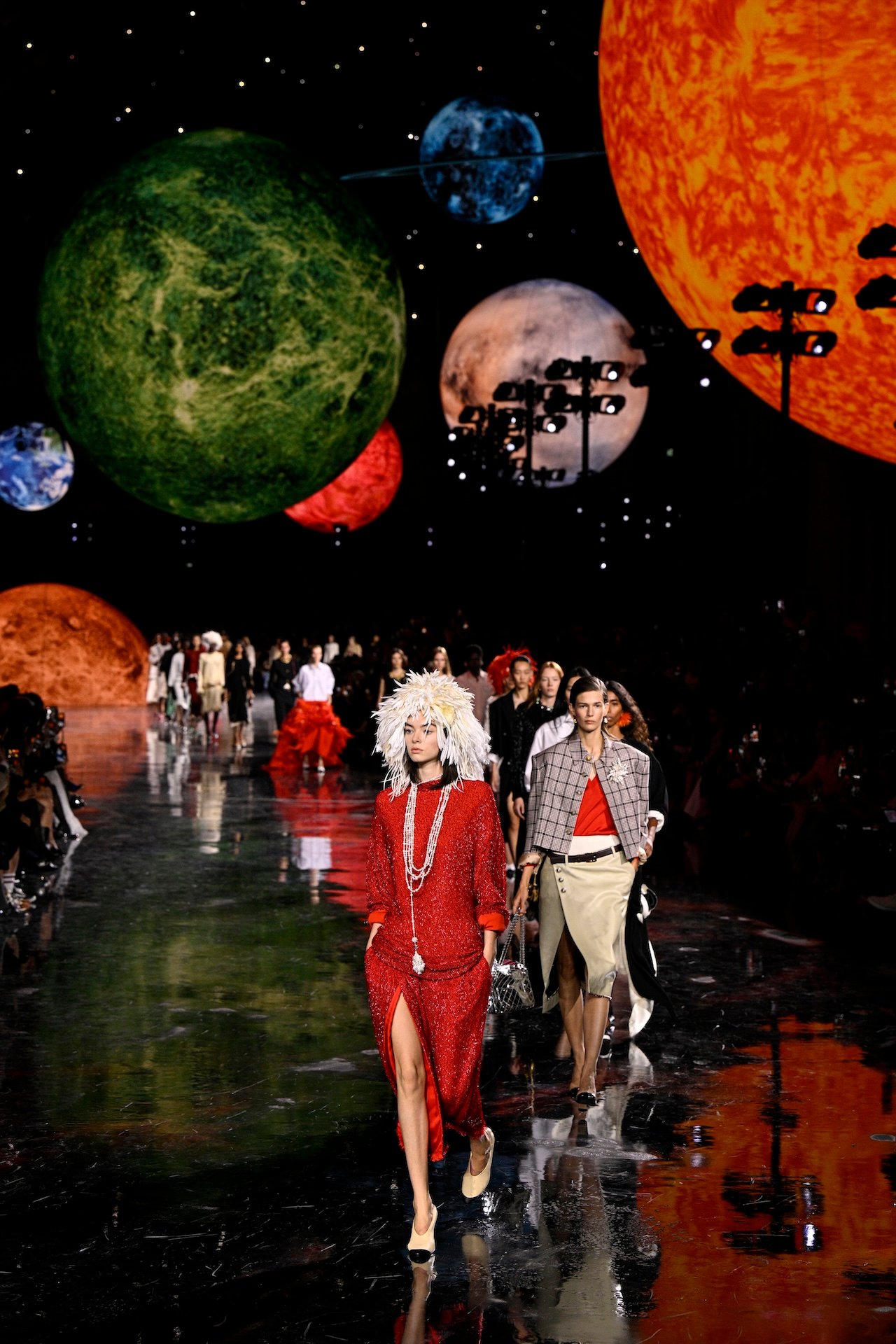
The Spring/Summer 2026 collection did just that. There were plenty of familiar motifs — camellias, pearls, the iconic tweed — but rendered with a new sense of ease. The silhouettes were softer, lighter, more fluid. Gone was the rigid polish of the Viard era; in its place, a quiet confidence that felt more spontaneous than staged.
Where Coco once said, “Fashion should die and die quickly, in order that commerce may survive,” Blazy seemed to answer with a counterpoint: fashion should breathe.
A Moment of Humanity on the Runway
Perhaps the most symbolic moment came when model Awar Odhiang — styled in a voluminous, feather-flecked skirt paired with a simple silk T-shirt — broke formation at the finale, applauding Blazy as he stepped onto the runway.
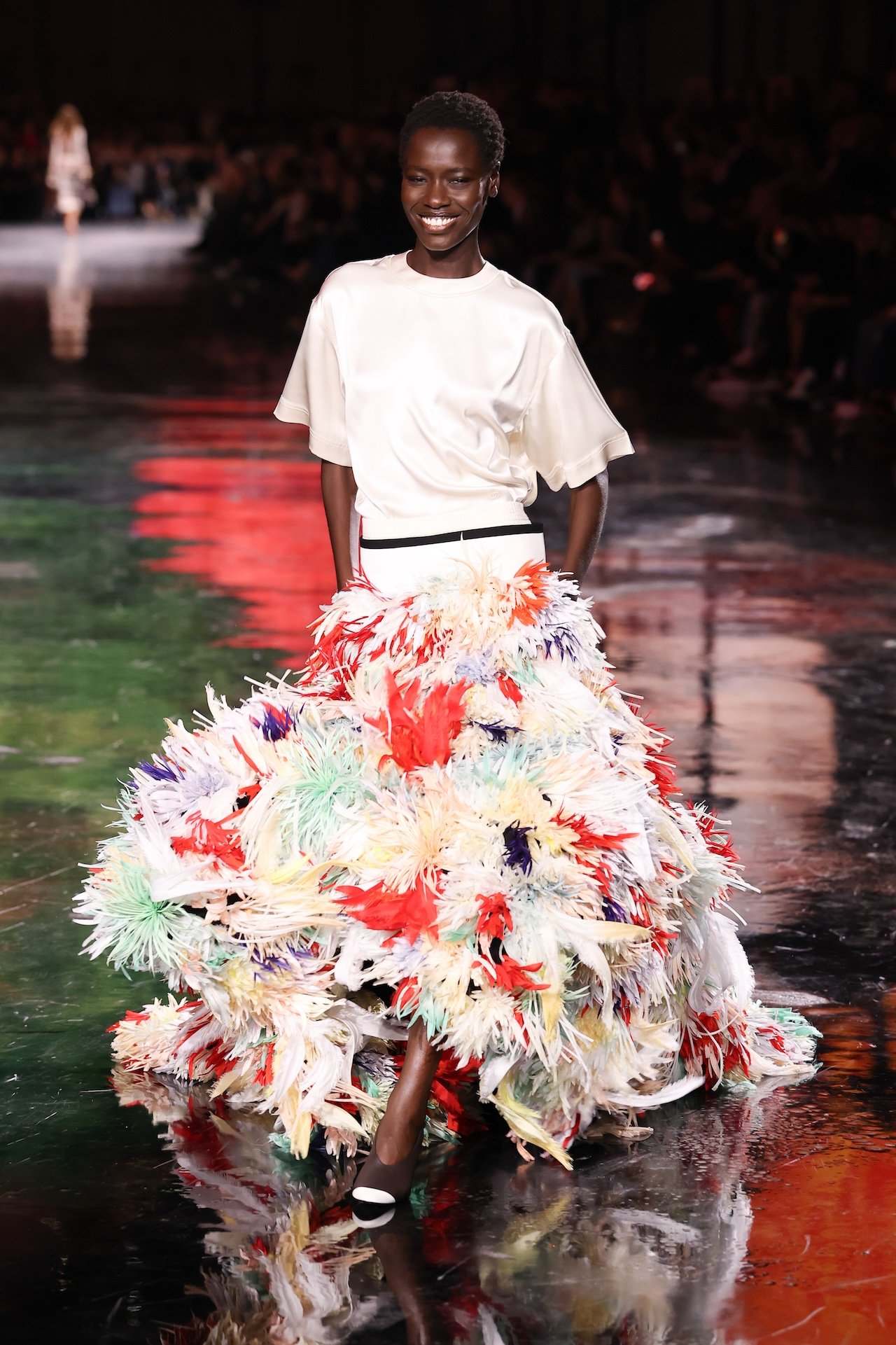
It was genuine, instantly viral, and a metaphor for Blazy’s Chanel: one foot in the cosmos, the other firmly grounded in craftsmanship, emotion over performance, and authenticity over artifice.
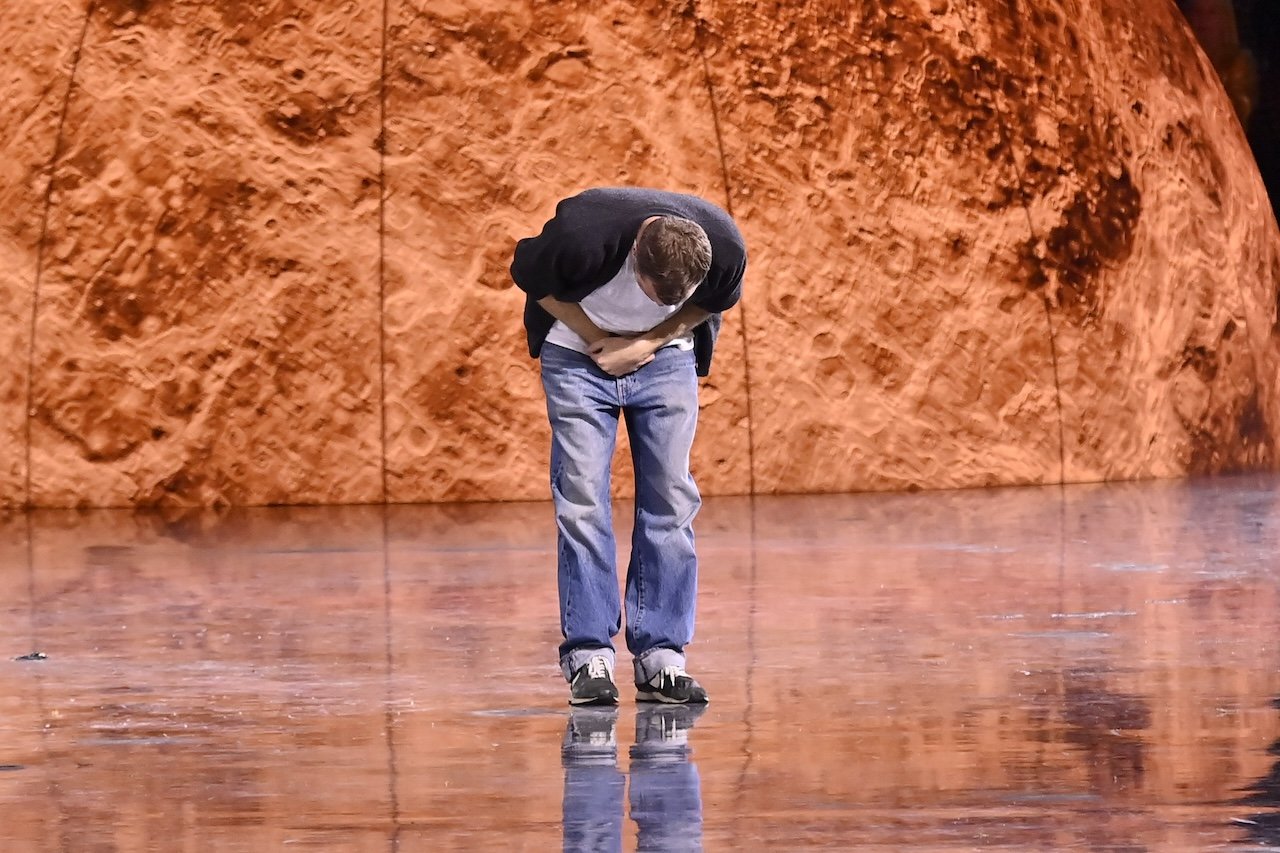
As applause filled the Grand Palais, Blazy emerged in his signature jeans and T-shirt — humble, almost shy. Yet in that simplicity was power. He had just redefined what a Chanel debut could look like: not a spectacle of opulence, but a celebration of craft and character.
Craft, Care, and the Future of Chanel
Blazy’s designs have always carried a tactile intimacy — an understanding that the hand of the maker matters as much as the idea itself. Every frayed edge, every raw seam felt deliberate, almost poetic.
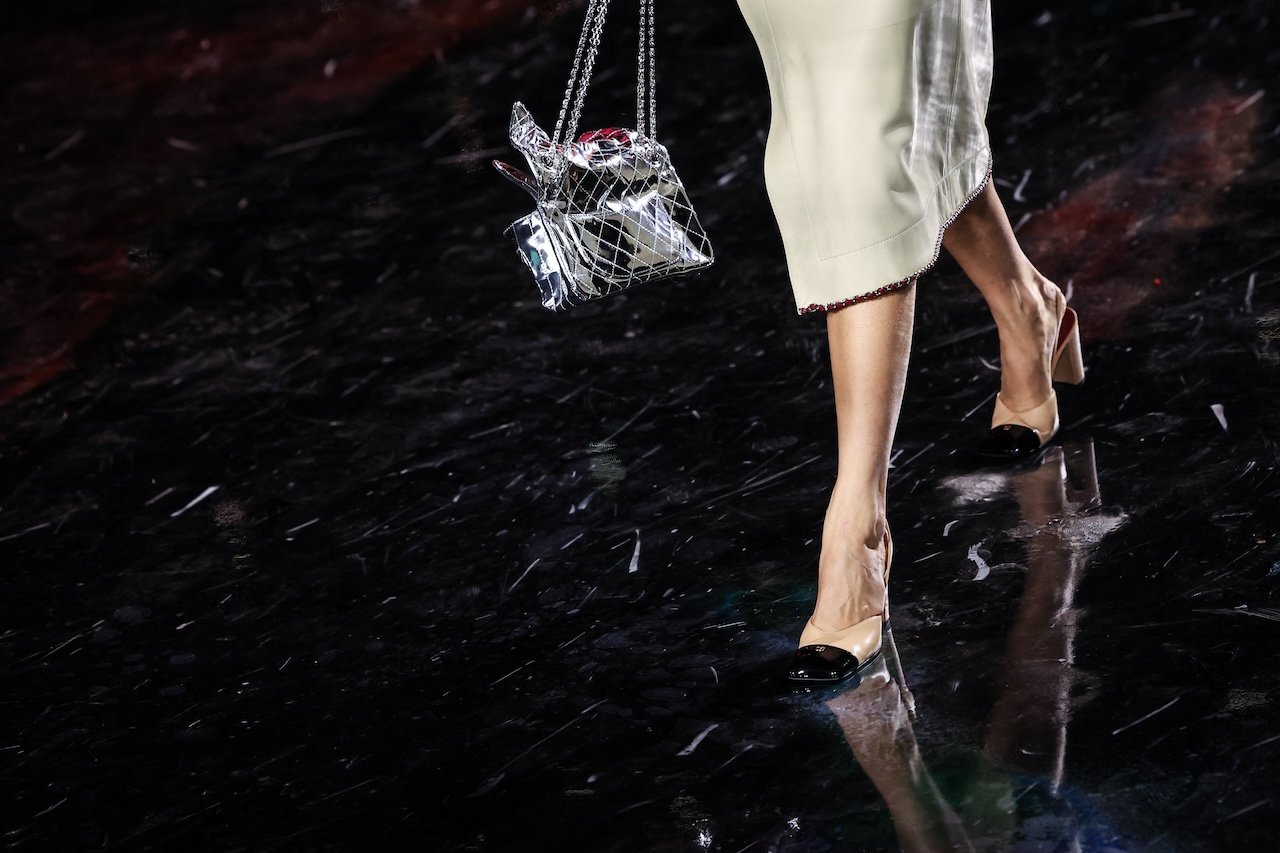
Even the accessories — half-open bags, slightly crushed clutches — spoke of a new kind of luxury: imperfect, effortless, and profoundly human.
Chanel in the Age of Intention
In an industry defined by digital saturation, Blazy’s debut hinted at a quieter revolution — one where fashion regains its depth, where garments are made to be touched, not scrolled.
With Chanel’s next Métiers d’Art collection announced to take place in New York on December 2, the house appears poised to embark on a new era — one less about nostalgia and more about nuance.
And if this first collection is any indication, Matthieu Blazy isn’t chasing the algorithm. He’s designing for the feeling that lingers long after the flash fades.














